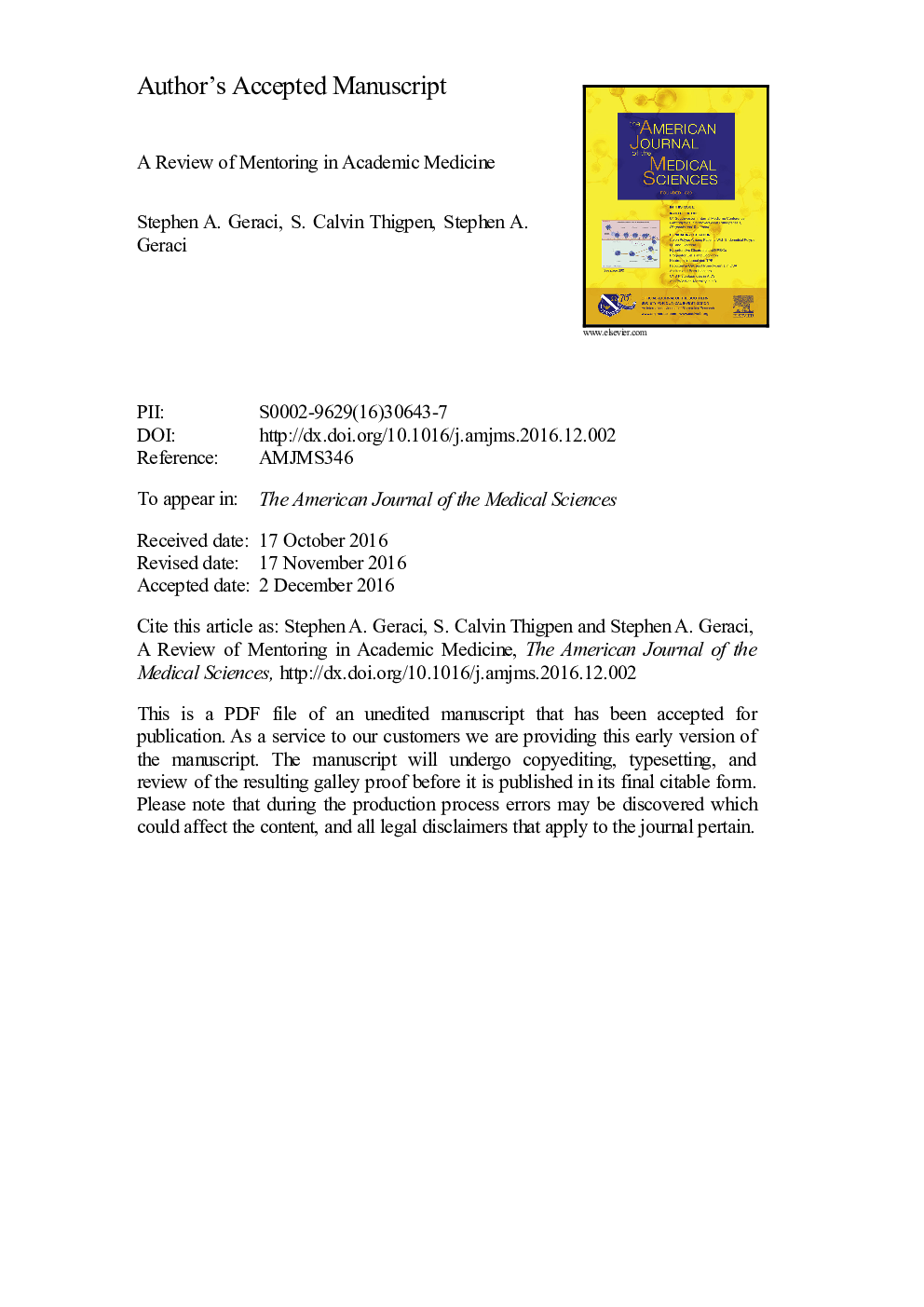| Article ID | Journal | Published Year | Pages | File Type |
|---|---|---|---|---|
| 5595674 | The American Journal of the Medical Sciences | 2017 | 29 Pages |
Abstract
Many believe that mentoring is essential for new and developing faculty physicians to achieve their professional and personal goals, yet there are both positive and potential negative aspects of mentoring. Research reports on the process have few quantifiable objective outcomes, use mostly single-center study populations, lack controls and use mostly qualitative techniques. Absence of a standardized definition of mentorship has allowed widespread application of the term to other forms of protégé support. Several models have been developed, with other generalized descriptors used to differentiate the important qualities of mentoring relationships. Published evidence suggests some characteristic attitudes and personal qualities, knowledge, skills and behaviors are common among successful mentors. Identification and validation of better efficacy metrics, and use of these to design new programs to train effective mentors, are needed.
Keywords
Related Topics
Health Sciences
Medicine and Dentistry
Cardiology and Cardiovascular Medicine
Authors
Stephen A. MD, S. Calvin MD,
